Fritextsökning
Artiklar per år
Innehållstyper
-

Settlement of cancer allegations against blockbuster drug
French pharmaceutical company Sanofi has reached a principal agreement in the US on around 4,000 of the cases in which its now withdrawn blockbuster heartburn drug Zantac allegedly had caused cancer.
-

”En väldigt uttalad AI-ångest i samhället idag”
AI kommer mer eller mindre bli en självklarhet på framtidens vårdavdelningar. Det menar Max Gordon, läkaren och AI-experten som forskar på nya applikationer vid Danderyds sjukhus.
-

Radioactive tracer to measure effect of drug towards Crohn’s disease
A radioactive tracer developed by Astra Zeneca and the Karolinska Institutet may play a major role for patients with Crohn's disease. That is the belief of Maria Belvisi at AstraZeneca.
-
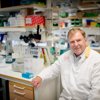
Jan Holmgren to receive award for the development of cholera vaccine
Researcher Jan Holmgren is being awarded for the development of the first effective drinkable cholera vaccine. The award is given by the International Vaccine Institute (IVI) and vaccine company SK bioscience.
-

The life science strategy – what the industry wants
The process of updating the national life science strategy has begun at the government’s life science office. According to industry stakeholders, Sweden’s competitiveness, the accessibility of health data and the integration of innovation in healthcare are some of the points that are essential to review.
-
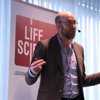
Han utvecklar AI-modeller för cancerdiagnostik
Det finns ett stort behov för tids- och kostnadseffektiv precisionsdiagnostik vid cancer. Det menar forskaren Mattias Rantalainen som arbetar med att ta fram lösningar baserad på artificiell intelligens.
-

”We need compatibility“
Penilla Gunther, founder of Fokus Patient and chair of the European Patient Safety Foundation, hopes that the forthcoming life science strategy will focus on efficient and secure management of patient data and equal access to medicines.
-
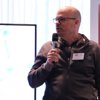
Möte om framtidens diagnostik igång i Stockholm
Labb och diagnostik står på agendan vid ett möte i Life City på onsdagen i Hagastaden.
-

Behandling av prostatacancer får positivt EU-utlåtande
Prostataläkemedlet Xtandi har nu fått ett positivt utlåtande i EU av den europeiska läkemedelsmyndigheten EMA:s rådgivande grupp CHMP.
-

Anna Törner: ”Orphan Designation – the "petite robe noire" of drug development”
It is easy to cling to various regulatory incentives, like orphan designation, and other expedited pathways, without understanding what they truly mean or whether they are indeed right (or wrong) for the current project, Anna Törner writes in a column.
-

Specific proposals and targets top the universities’ desired priorities
What are the universities’ expectations for the update of the national life science strategy? Life Science Sweden posed the question to representatives from Karolinska Institutet and Sahlgrenska Academy.
-

Anna Törner: ”Orphan designation läkemedelsutvecklingens ’petite robe noire’”
Det är så lätt att klamra sig fast vid olika regulatoriska incitament, som orphan designation, utan att egentligen veta vad de innebär och på vilket sätt de kan vara rätt (eller fel), skriver Anna Törner i en krönika.
-
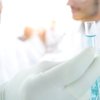
Analys av metaboliter hjälp för att skräddarsy behandlingar
Genom att studera kroppens nedbrytningsprodukter, metaboliter, kan behandlingar bättre skräddarsys för patientens specifika behov och förutsättningar. Det säger Dusan Raicevic som jobbar på företaget Metabolon.
-
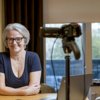
Så får du ihop ett CV som imponerar på life science-rekryteraren
På dagens arbetsmarknad är det viktigt att alltid ha ett uppdaterat CV och att skriva ett är inte helt enkelt. Men så länge man har ett konkret mål med sin karriär kan man med enkla medel slänga ihop en resumé, menar karriärcoachen Tina Persson.
-

Forskare närmare att skapa konstgjorda äggceller – ”Väldigt stora risker”
Kan en hudcell förvandlas till ett ägg som kan producera livskraftiga embryon? Nya forskningsframsteg kopplade till tekniken som användes för fåret Dolly kan innebära en revolution inom reproduktionsmedicin, enligt ny studie. Men Niklas Juth, professor i medicinsk etik, är skeptisk.
-

Venom from the deathstalker carries radiopharmaceuticals to the brain
In order to target cancerous brain tumours with radionuclides, the problematic blood-brain barrier must first be crossed. Life Science Sweden has visited a KI researcher who is trialling an unusual approach ‒ using scorpion venom.
-

“Life science is important on a personal level”
From the High Coast to the Government Offices. Jeanette Edblad is a native of Ångermanland, and since September last year, she has been Head and Coordinator of the Government’s Life Science Office.
-

Samuel Lagercrantz: ”Will the Swedish life science strategy be updated with precision?”
What will the Swedish government focus on in the life science strategy that is being updated? And what should be prioritized in the strategy? Life Science Sweden's editor-in-chief Samuel Lagercrantz highlights three areas.
-

“What is important is to create an overview and understanding from different perspectives”
Scientist Jochen Schwenk analyses blood proteins using proteomics to improve our understanding of disease and health. This year, he is moderating the Lab & Diagnostics of the Future event.
-

From Valneva to the CEO position at NorthX – “I saw it as a great opportunity”
A new cell therapy for leukaemia, a vaccine in tablet form against cholera, and a proprietary mRNA line with the potential capacity to supply the entire Nordic region with vaccines during a future pandemic. These are some of the projects underway at NorthX Biologics – under the direction of new CEO Janet Hoogstraate.
-

Marie Gårdmark: ”Interchangeable biological medicines – soon in a pharmacy near you?”
”Generic competition is an effective way to push down drug prices, but it has not worked equally well for biosimilars. Biosimilars require more time to gain market share compared to generics, and new biosimilars do not always lead to lower prices” writes Marie Gårdmark in a column.
-

”Det viktiga är att man skapar en överblick och förståelse från olika perspektiv”
Forskaren Jochen Schwenk analyserar blodproteiner med hjälp av proteomik för att förbättra vår förståelse av sjukdom och hälsa. Han modererar i år eventet Lab & Diagnostics of the Future.
-

“Don’t postpone the transition to IVDR”
Operators who have not yet started to adapt to the requirements of the new EU IVDR regulation are running out of excuses. This is the opinion of Helena Dzojic, Head of Unit at the Swedish Medical Products Agency, who continues to persistently spread her message: don’t postpone the transition.
-

To build trust, one must be able to say “I don’t know” – whether human or AI
Will AI strengthen or break down trust? It depends on whether we can understand and accept its limitations, and our own, writes Sarah Lidé in a column.